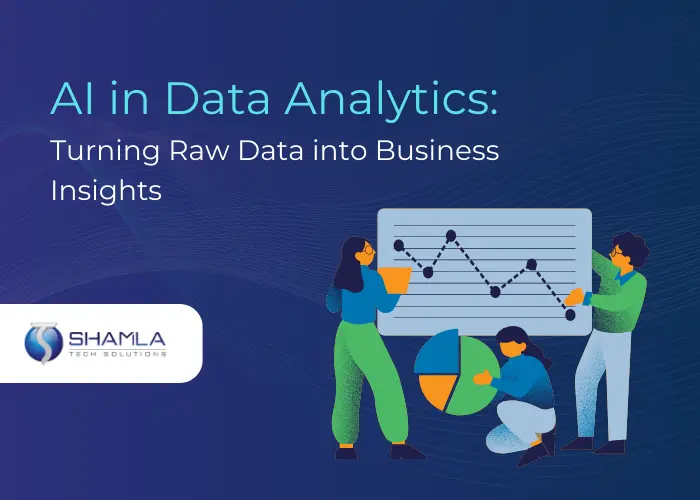AI data analysis uses AI to find patterns, gain insights, and make data-driven decisions from massive datasets. Machine learning algorithms can forecast future trends, whereas NLP models improve data interaction.
Data is manually explored, trends are found, and significant insights are summarized in traditional data analysis. AI-driven data analytics uses machine learning models to manage large amounts of data, find hidden patterns, and learn from fresh data inputs. Businesses may uncover hidden value with AI analytics.
Machine learning, a key AI data analysis technology, lets models learn from historical data, spot trends, and predict future outcomes. AI can predict customer attrition based on historical behavior in customer behavior analysis.
NLP also enables “chat with the data.” This involves asking AI-powered software queries about trends or data points and obtaining natural language answers. This progress has made data interaction easier for non-technical team members, making firms more data-driven.
Applications of AI in Business Analytics
Improving User Experiences with AI Analytics
Customer Segmentation
Sales Forecasting with AI-Powered Analytics
Use cases of AI in business analytics
Financial Industry
Retail Industry
Telecom Industry
Benefits of Using AI in Data Analysis
Improved Decision-Making
Enhanced Efficiency and Productivity
Predictive Analytics
Personalized Customer Experiences
Cost Reduction
Enhanced Data Accuracy and Quality
Competitive Advantage
Innovation and Product Development
Future Trends in AI-Powered Data Analytics
AI in data analytics will evolve due to technology advances and commercial requirements. Future trends include:
- AutoML simplifies model construction with automated machine learning.
- Edge AI processes data from IoT devices for faster insights.
- XAI tools make AI decisions transparent and intelligible.
- Augmented Analytics: AI, ML, and NLP help users explore and gain insights from data.
- Cloud-based AI solutions with plug-and-play analytics.
Conclusion
AI in data analytics is becoming essential to improve efficiency and effectiveness. It can also help you save time. By automating difficult analysis and enhancing decision-making, artificial intelligence in data analysis is transforming business. Companies can use ai in business intelligence and data analytics by means of machine learning for data analytics and artificial intelligence can help you remain competitive in the globe and enable you to make educated decisions.
Including artificial intelligence into data analysis changes the way businesses create plans and choices. AI-driven insights help companies to convert large volumes of data into actionable plans that propel expansion, streamline processes, and improve consumer experiences. Businesses that use artificial intelligence will be better positioned to meet their business objectives and keep a competitive edge in the market as the technology advances.








